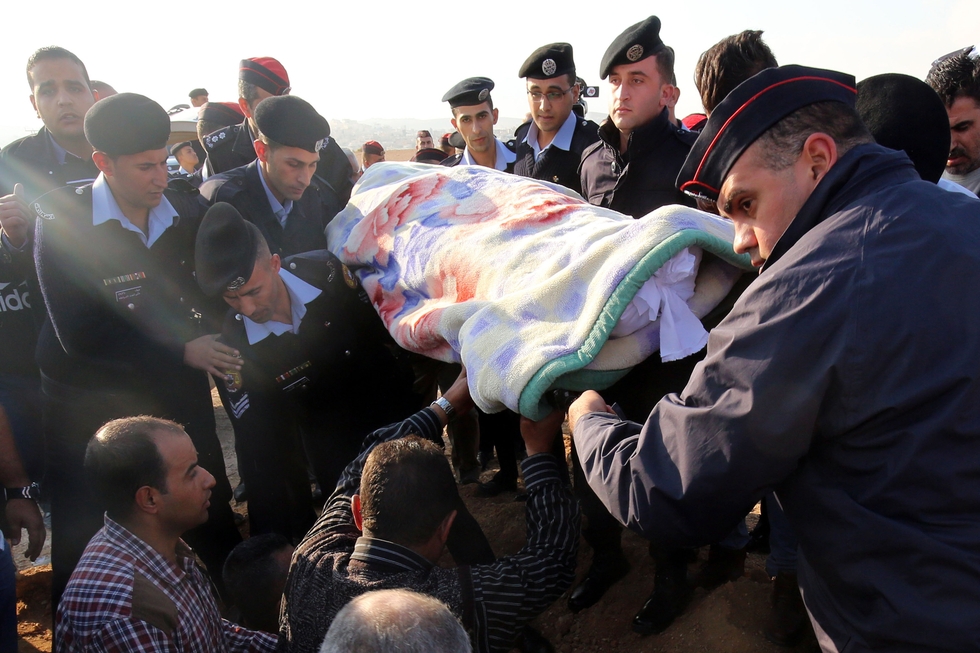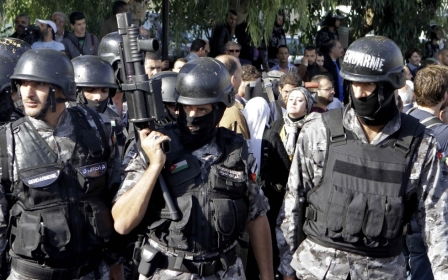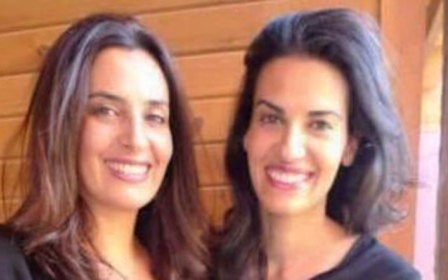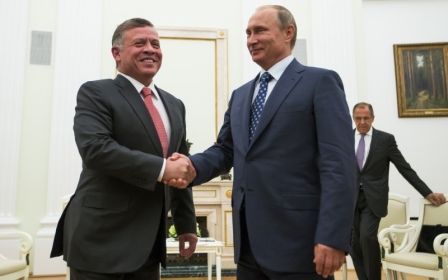Questions linger after shooting at US training camp in Jordan

The killing of at least five people at a military training centre in Jordan on Monday has caused shockwaves. In a country that maintains a delicate and complex alliance with Western powers, the deaths of two American trainers at the hands of a member of the Jordanian police force left some in the country fearing the potential consequences.
But with no clear answers coming from authorities in the aftermath of the attack, many ordinary Jordanians were on Tuesday left speculating as to exactly what happened at the training centre, and what that might mean.
Two American trainers, one South African and two Jordanians were killed on Monday when a Jordanian police officer opened fire at the US-funded Jordanian International Police Training Centre (JIPTC) in Muwaqqar, southeast of Jordan’s capital Amman. Reports in government-run media identified the perpetrator as Anwar Abu Zeid, a senior police officer, and said it was unknown whether a dispute was the cause of the killings. Grisly photographs from the scene showed the tiled floor and white walls of the centre’s dining hall splattered with blood amid meals lying unfinished on plates.
JIPTC has been used to train tens of thousands of security personnel since it was founded in 2003, when it was a base for training Iraqi police forces in the wake of the US invasion. Today it’s jointly run by private contractors – including Dyncorp, the aviation company that employed the deceased Americans – and the Jordanian government as a centre for personnel from all over the Middle East to receive training and capacity building from international mentors.
Jamal Ahmad, the coordinator at Jordan University’s Centre for Security Studies, told Middle East Eye it is “common knowledge” that the centre is used to train forces from all across the region, including Palestinians, Iraqis and Libyans.
Despite its large capacity, JIPTC represents just a small element of Jordan’s military cooperation with its Western allies. The US supports the King Abdullah Special Operations Training Centre (KASOTC), a state-of-the-art military training academy focused on training special forces established in 2009. Since that same year, it’s estimated that Jordan has received excess defence equipment from the US worth more than $81 million. This February the US pledged a billion dollars annually in foreign assistance to the country.
Much of this is now focused on maintaining security along the border with Syria - military aid to Jordan has increased since the beginning of the Syrian Civil War and Operation Inherent Resolve, the US-led campaign against Islamic State (IS) militants.
But, says Riad Khawaji, head of the Institute for Near East and Gulf Military Analysis, the relationship has been developing since 2003.
“Jordan helped the US a great deal in Iraq, and it was the staging point for special operations. Jordan is a very close and important strategic ally for the US and relations between the two remain very good.”
Among the general public in Jordan, though, attitudes toward the strategic relationship are ambivalent. Though support for strikes against IS surged after the death of Muaz al-Kasasbeh, the Jordanian pilot captured and burned alive by the group, anti-Western sentiment remains strong among the general population. Analysts are concerned, too, that support for extremist groups may be on the rise. At the beginning of the year it was estimated that 1,200 Jordanians were fighting with IS in Syria, and fears of militant activity and unrest – especially in restive areas like Ma'an in the country's south - have prompted the government to crack down on shows of support for the group.
“The interests of the US and Israel come first, and Jordan just has to follow them, be controlled by them,” one man, who did not wish to disclose his name, told MEE in the wake of Monday’s mass shooting, one of the worst attacks to hit the country in years. His view reflected a broader frustration with US presence in Jordan, an attitude that doesn't necessarily imply support for violence. But others, interpreting yesterday’s shooting as an ideological act, went further, praising the shooting and calling for similar attacks.
For those who saw it as such, the shooting could not have arrived on a more conspicuous date. Jordanians remember 9 November as the anniversary of bomb attacks that targeted three upscale hotels in the capital Amman in 2005, killing 60 people and injuring more than 110. The attacks were carried out by al-Qaeda in Iraq, in response, they said, to the presence of US and Israeli intelligence agents, and Western governments more generally, in their targets.
The resonant date of the attack, and the broader fear of extremism, has fuelled speculation among Jordanians and other commentators that Monday’s shooting was more sinister than a private dispute turned bloody. The Wall Street Journal, for instance, reported that the attack “appeared” to demonstrate a return to “terrorism-related bloodshed” in Jordan. The BBC’s correspondent Kevin Connelly noted that “in the absence of any other obvious motive for the shooting it will be assumed that the killings were intended as an act of solidarity with militant groups in the Middle East”.
At Jordan University, however, Jamal Ahmed played down suggestions that the incident was tied to militancy, insisting that it was a one-off event. “Shootings happen all the time. It’s like other shootings that have happened in the United States.”
American and Jordanian authorities, too, declined to speculate about the wider causes and consequences. “We are working closely with the Government of Jordan and local security services,” the US Embassy in Jordan said in a statement. “We strongly condemn this incident and we deeply appreciate the cooperation and support received from our Jordanian partners. The Embassy has not changed its security posture.”
In Amman on Tuesday, many Jordanians told MEE they were happy to accept the official explanation - that the shooting was a tragic incident unconnected to wider militancy.
“Maybe the guy was unhappy because the Americans were strong in this centre, and he as a Jordanian was weak,” Bilal, who sat smoking in downtown Amman, suggested. A Syrian friend, Hamada, disagreed. “The shooter was a Salafi, I believe. But who can know? Why would someone do something like that - just suddenly shoot five people? How could he manage to do that?”
Fathel Khawaldi, a car park attendant in Amman, also argued that the shooting was unconnected to Jordan’s broader relationship with the US. “I think he was mad. If he was targeting America, why would he have killed two Jordanians at the same time?” he said, adding that he supported America’s position in Jordan. “We need America here in Jordan, the US helps us a lot. With education, with security. I like America, and I like all the Americans I’ve met.”
Other foreign groups that work alongside the Jordanian security forces expressed shock at the incident, but stressed that Jordan remains a safe place to work. At Siren, a British non-profit that trains law enforcement forces in Zaatari refugee camp, communications worker Nick Newsom reiterated the importance of continuing to offer support in the country.
“For me, the biggest safety risk in operating in Jordan relates to road safety, to be honest. We have an excellent working relationship with our Jordanian colleagues,” he said. “Everyone is shocked by the situation and it’s very tragic. But I think it’s very important that we continue the work we’re doing, while continuing to maintain a proper level of vigilance.”
For some in Amman today, however, Monday’s tragedy has exposed a deep unease. With many expressing support for the shooting, the rift between government policy and popular sentiment is difficult to deny – regardless of what the investigation into the deaths concludes.
“It’s the first time an incident like this has taken place, and it’s very unfortunate,” Khawaji said. “I think the fear here is the influence of IS ideology, not just in Jordan but in the whole of the Middle East. It will be a concern for everyone following Monday’s events, and everyone will be interested in reviewing Jordan’s strategy and security.”
New MEE newsletter: Jerusalem Dispatch
Sign up to get the latest insights and analysis on Israel-Palestine, alongside Turkey Unpacked and other MEE newsletters
Middle East Eye delivers independent and unrivalled coverage and analysis of the Middle East, North Africa and beyond. To learn more about republishing this content and the associated fees, please fill out this form. More about MEE can be found here.




